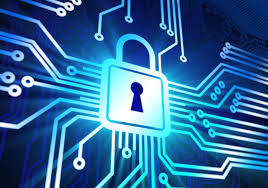Why Every Company Needs an Information Security Officer
In today's world, businesses of all sizes depend heavily on digital systems and data. While this digital transformation brings many benefits, it also exposes companies to a growing number of cyber threats. Data breaches, ransomware attacks, and other types of cybercrime have become alarmingly common, causing serious financial and reputational harm. Protecting sensitive information is now more crucial than ever, making the role of an Information Security Officer (ISO) absolutely essential.
What is a Dedicated Security Officer?
A dedicated security officer, often referred to as an Information Security Officer (ISO) or Chief Information Security Officer (CISO) when in a senior position, is a professional responsible for overseeing and implementing a company's information security strategy. This role is crucial in protecting an organization's data, ensuring compliance with relevant regulations, and mitigating risks associated with cyber threats.
Many small business have asked the question, “why do you need an ISO?” The Information Security Officer purpose is to serve as the linchpin in a company's defense against cyberattacks. They are tasked with creating a robust security framework that not only addresses current threats but is also adaptable to future challenges. This proactive approach is essential in maintaining the integrity, confidentiality, and availability of an organization's information assets.
What are the Responsibilities of an ISO?
The responsibilities of an Information Security Officer are extensive and multifaceted. They encompass a range of activities designed to protect an organization's information assets from various threats. Key responsibilities include:
- Developing and Implementing Security Policies: The ISO is responsible for creating comprehensive security policies and procedures that align with the organization's objectives and regulatory requirements. These policies serve as a guideline for employees and stakeholders, ensuring a consistent approach to information security.
- Risk Management: Identifying and assessing potential security risks is a critical aspect of an ISO's role. This involves conducting regular risk assessments, vulnerability scans, and penetration tests to uncover and address security weaknesses.
- Incident Response and Management: In the event of a security breach, the ISO leads the response effort. This includes containing the breach, mitigating its impact, and coordinating with relevant authorities. The ISO also oversees the investigation and implements measures to prevent future incidents.
- Compliance and Regulatory Adherence: The ISO ensures that the organization complies with relevant laws, regulations, and industry standards. This involves staying up-to-date with evolving regulations and implementing necessary changes to maintain compliance.
- Security Awareness and Training: Educating employees about security best practices is a vital component of an ISO's responsibilities. Regular training sessions and awareness programs help foster a security-conscious culture within the organization.
- Monitoring and Reporting: Continuous monitoring of the organization's systems and networks is essential for detecting and responding to threats in real-time. The ISO also provides regular reports to senior management, highlighting security posture and areas for improvement.
Why Do You Need a Chief Information Security Officer?
The necessity of having a Chief Information Security Officer (CISO) stems from the increasing complexity and sophistication of cyber threats. Here are several reasons why every company should consider appointing a CISO:
- Expertise and Focus: A CISO brings specialized knowledge and experience in information security. Their focused approach ensures that security considerations are integrated into all aspects of the organization's operations.
- Strategic Leadership: The CISO provides strategic direction and leadership, aligning the security program with the organization's overall goals. This ensures that security initiatives support business objectives rather than hinder them.
- Risk Mitigation: By proactively identifying and addressing security risks, a CISO helps prevent costly data breaches and cyberattacks. Their efforts can save the organization from significant financial losses and reputational damage.
- Regulatory Compliance: Navigating the complex landscape of regulations and standards can be challenging. A CISO ensures that the organization remains compliant, avoiding legal penalties and potential business disruptions.
- Incident Preparedness: A CISO establishes and maintains an effective incident response plan, ensuring the organization is prepared to respond swiftly and effectively to security incidents. This minimizes the impact of breaches and accelerates recovery.
- Building Trust: In an era where data privacy and security are paramount, having a CISO demonstrates a commitment to protecting sensitive information. This can enhance the organization's reputation and build trust with customers, partners, and stakeholders.
Can't Afford a Full-time CISO? Try a Virtual CISO (vCISO)
While the necessity of a Chief Information Security Officer (CISO) is clear, many small to medium-sized businesses (SMBs) face a significant challenge: the cost. Full-time CISOs are highly skilled professionals in high demand, commanding substantial salaries that might be prohibitive for smaller companies. Additionally, finding and retaining such top-tier talent can be incredibly difficult, given the competitive job market. However, there's a viable alternative that offers the expertise and benefits of a CISO without the hefty price tag: the Virtual CISO (vCISO).
What is a Virtual CISO (vCISO)?
A Virtual CISO is a seasoned cybersecurity expert who provides the same services and guidance as a full-time CISO but operates on a part-time, contractual, or as-needed basis. This flexible approach allows businesses to access high-level security expertise without the financial burden of a full-time executive salary. Virtual CISOs work remotely, leveraging their extensive experience to develop and manage an organization's security strategy, ensuring robust protection against cyber threats.
Benefits of a vCISO
- Cost-Effectiveness: One of the most significant advantages of a vCISO is cost savings. SMBs can secure top-notch security leadership without the expenses associated with a full-time position, such as benefits, bonuses, and other overhead costs.
- Access to Expertise: vCISOs are typically seasoned professionals with years of experience across various industries. This breadth of knowledge allows them to bring best practices and innovative solutions tailored to the specific needs of different organizations.
- Flexibility and Scalability: With a vCISO, companies can scale their security efforts up or down based on their needs and budget. This flexibility ensures that organizations only pay for the services they require, whether it's ongoing support or help with specific projects.
- Quick Implementation: Hiring a full-time CISO can be a lengthy process, from recruitment to onboarding. In contrast, a vCISO can be engaged quickly, allowing businesses to address their security needs promptly and efficiently.
- Unbiased Perspective: As external consultants, vCISOs bring an objective viewpoint to the organization’s security posture. This impartiality can be invaluable in identifying weaknesses and implementing effective solutions without internal biases.
- Collective Expertise: Many vCISO firms have a team of expert professionals who collectively contribute their knowledge and experience. This means that the organization benefits from a broader range of expertise than a single individual could provide, enhancing the overall security strategy.
Key Services Provided by a vCISO
Every vCISO firm may have a different scope and approach, but here are a few areas typically covered by vCISO services:
- Security Strategy Development: A vCISO works with the organization's leadership to develop a comprehensive security strategy that aligns with business goals and addresses potential risks.
- Risk Assessment and Management: Regular risk assessments help identify vulnerabilities within the company's infrastructure. The vCISO then prioritizes these risks and develops mitigation plans to address them.
- Policy and Procedure Creation: Crafting and implementing security policies and procedures are critical to maintaining a consistent and effective security posture. A vCISO ensures these guidelines are up-to-date and in line with industry standards.
- Compliance Management: Navigating the complex landscape of regulations and standards can be challenging. A vCISO ensures that the organization remains compliant with relevant laws, such as GDPR, HIPAA, or PCI-DSS.
- Incident Response Planning: In the event of a security breach, having a well-defined incident response plan is crucial. A vCISO helps develop and maintain this plan, ensuring the organization can respond swiftly and effectively to minimize damage.
- Security Training and Awareness: Educating employees about cybersecurity best practices is essential in creating a security-conscious culture. A vCISO conducts training sessions and awareness programs to keep staff informed and vigilant.
Closing Thoughts
A Chief Information Security Officer (CISO) is crucial for developing security frameworks, managing risks, ensuring compliance, and fostering a security-conscious culture. However, many small to medium-sized businesses face the challenge of high costs and difficulty in hiring a full-time CISO. This is where a Virtual CISO (vCISO) becomes invaluable. A vCISO offers the same expertise and strategic direction as a full-time CISO but on a flexible, part-time, or contractual basis, making it a cost-effective solution for SMBs. For businesses looking to enhance their cybersecurity posture while maintaining financial flexibility, a vCISO is an ideal solution.
Compass IT Compliance, a nationwide leader in offering vCISO services, provides expert guidance and support tailored to each organization's unique needs. With a comprehensive approach that covers all critical aspects of information security, Compass IT Compliance ensures that businesses are well-prepared to tackle the evolving landscape of cyber threats. By leveraging the expertise of Compass IT Compliance's team of professionals, organizations can secure their information assets, achieve regulatory compliance, and build trust with their customers, partners, and stakeholders. The partnership with Compass IT Compliance allows businesses to focus on their core operations while having peace of mind that their cybersecurity strategy is in capable hands. Investing in a vCISO from Compass IT Compliance is not just a smart move—it's a critical step towards safeguarding your company's future in an increasingly digital world. Contact us today to learn more about how Compass IT Compliance can help protect your business.
Contact Us
Share this
You May Also Like
These Related Stories

IT Risk Assessments and the SANS Top 20 - Part III

Information Security Programs: Where to Start?

.webp?width=2169&height=526&name=Compass%20white%20blue%20transparent%202%20website%20(1).webp)
-1.webp?width=2169&height=620&name=Compass%20regular%20transparent%20website%20smaller%20(1)-1.webp)
No Comments Yet
Let us know what you think